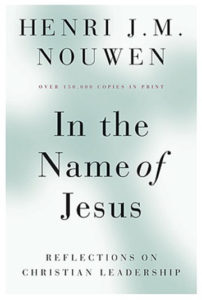
Synopsis
Overall Rating
Final Thoughts
Year Published
Authors
Topics
Synopsis
Final Thoughts
Overall Rating
I tried to read this book last year around the same time, but I had to put it down. I’m not entirely sure what it was, but I couldn’t get into it. I blame it partially on the first person perspective, as that’s not my favorite. But that didn’t bother me as much this time. Alas, a lot can change in a year and, here I am, able to write a book brief about Heroes and Monsters.
I think Josh Riebock is a phenomenal author as well as a speaker. I read his first book, My Generation (which I have since lost 🙁 ) a few years back and waited anxiously to read more from him. Enter Heroes and Monsters, his sophomore effort. I was honestly slightly disappointed by this book. It’s not bad really, but My Generation was definitely a better read. Perhaps it’s the first person narrative throughout the book. I was expecting more of a discussionary book than a collection of stories.
To be honest, that’s really all this book is. It’s essentially a memoir of select stories from Riebock’s past, many of which are imaginary. Perhaps that’s what bothered me about the book. There was no distinction between the fact and the fiction. (I’m sorry, but I know you never had a cow talk to you in your kitchen or your couch, but how many of the other stories actually happened is my question.) I expected (read: wanted) him to move from stories to expanding on things. Talking about it. Writing an exposition so to speak on the heroes and monsters in all of us, where they come from, and how we deal with them.
Yes, he showed us his story. The moments that helped him; the moments that seemed like everything was gone. But the cover calls it, “an honest look at the struggles within all of us.” A more accurate description would be, “an honest look at the struggles within Josh Riebock.” We may have similar struggles, but nobodies are all the same and portraying a book about yourself, and your life as a book about everyone’s struggles is a little…. not okay?
None of that to say that this is necessarily a bad read. It’s not. I enjoyed it. And Riebock made a lot of really good observations. I don’t want to go into detail about all of them, but I’d at least like to highlight a few.
“He needs to know that I love him because obviously, that moment will prove mystical to him!”
Friends who are less afraid to be themselves around one another are closer than blood.
“The problem is the delusion I’ve created and become attached to. The problem is the delusion that what I’m picturing is a far better option.”
If someone ain’t doin’ something global, with a flashy slogan attached to it and millions of folks interested, then they must be wastin’ their life. People confuse dreams with grandeur all the time, but they ain’t the same thing.
I’m going to spend a moment discussing this last one because it resonates with me. (Disclaimer- the discussion is about how it’s okay to not be doing global things.)
I get that way sometimes. I run this blog. I make music. I’m working on some books. And at times I think, “What’s the point? Only ____ people will ever experience it. Why spend so much time and energy on them if they aren’t going to reach the masses? If I’m not going to be widely recognized for it?”
But then I step back for a second and remember that, honestly, I don’t even do it for anyone else. I do these things for myself. I do them because I enjoy them. I love to write (be it here or within the pages of a fictional story). I love music. And I love making it. I may not be as great as those who are famous for doing it, but I have some talent. I do these things because they give me joy, and nothing is more satisfying than looking back and saying, “yeah, I did that. It’s not perfect, but it’s mine.”
But even then, I do it for more than just myself. I do them for the ____ people who will enjoy them. It may not be a million, or even a hundred. But even if just a handful of people enjoy my works, that’s enough for me. I brightened someone else’s day (or helped them with something), and what more could I ask for?
There are two things that Riebock said that I would like to take a moment to object to, though. The first one is more superficial. At one point in the book, he’s talking about a conversation with a friend where he discusses feeling bad for being an introvert. In his reflection, he says, “I’m not a woman, for crying out loud! I’m an alpha! I shouldn’t be struggling with this- whatever “this” is.” Perhaps what upset me the most was there was no retraction. He didn’t go back to it and say, “that thought was wrong.” He just dropped it.
Coming from an author who earlier said, “Am I even sure I’m straight?” this felt incredibly insensitive and misogynistic. Like women are the only one’s that struggle with feelings of inadequacy. Like there’s something inferior, unman-like, less than alpha about needing affirmation from someone else. Like Christ’s crisis before the crucifixion was too womanly of Him. As if the psalmists were weak for their cries of desperation and insecurity in the sight of the Lord. I’m not trying to be harsh on him. Yes, that’s perhaps the thought that he had. But with nothing later to reconcile the matter, it’s unsettling.
Because that’s what intimacy is Josh! Because this is where connection happens: in the places you try the hardest to hide. Naked, remember?
The second part is his discussion of intimacy with Jack (ie- Jesus). I agree that that is where intimacy happens. Although, what I don’t necessarily agree on, is whether or not that intimacy is required with Jesus. While Jesus was here, he saved and healed all who came to Him. Even those who didn’t feel comfortable inviting them into their home. They refused intimacy with Him, and he still healed them.
Would He not do the same for us today? Jesus was only intimate with a few people during His time on earth, and, even then, he was more with some of those than others. Expecting everyone who follows Jesus to engage in a 100% intimate connection with him doesn’t seem plausible. It doesn’t even seem to be what Jesus wanted. He wants us to come, there’s not doubt about that. But he wants us to come on our terms when we’re ready. He wants us to relate to Him in a way we feel comfortable. (Let’s not forget that He met Peter where was at).
We all relate to people and connect in different ways. If we know this, how much more does God know this? He wants us to relate to Him in the ways that he created us to relate to people. For some that intimacy, for some that’s not. And I have no doubt that He’s okay with that.
If you’re looking for a good quasi-autobiography, this is a good book. However, if you’re looking for a book that actually looks at the heroes and monsters that we all carry around inside of us (from various perspectives) then I’d recommend finding something else.




